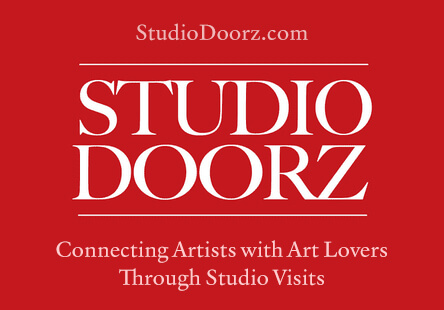As I sat down to write this last article in my series on overcoming fear, I had to laugh at myself for putting this one off until the very end.
Because this fear—the fear of the unknown—is one of mine.
I’m a planner to the core. I like lists and schedules, and just. . . KNOWING. Anything unexpected tends to freak me out.
But maybe you’re not like me (it wouldn’t come as a surprise). I have several friends who aren’t, and in many ways I envy them. Instead of worrying they seem to thrive on the new, exciting and completely unexpected things in life.
Whichever personality type you are, if your goal is to be an independent professional artist, you’ll probably need to accept the fact that many parts of your life are going to be filled with the unknown.
In the beginning you probably won’t know how much to charge per commission or when your next paycheck will arrive. You might have no idea how to file quarterly taxes, where to get health insurance, or how to save for retirement on your own.
If thoughts like that make you mildly uncomfortable, moderately nervous or flat-out scared, you’re not alone. But there’s no need to let those fears keep you from doing what you really want to do.
Here are some techniques that may help:
Four methods for overcoming the fear of the unknown
1. Try new things even when you don’t have to
I don’t try new things as much as I should (I’ve always struggled with this) but it’s very easy to see the positive impact when I do.
Getting out of my comfort zone always reminds me of my core strengths—the skills I fall back on when I’m not in my element. For me, this builds more confidence in my ability to handle the unknown than in sticking to my schedules and lists.
If you’re like me, your tendency will be to stay in certain environments or surround yourself with people or things that you’re sure of. In the long run, though, that kind of coddling will just create more UN-certainty and fear.
Instead of sheltering yourself, start expanding your horizons—over time this will build up your tolerance for the unknown.
2. Research the edges of the unknown
A lot of fear can be vanquished by learning as much as you can about the particular "unknowns" that you’re facing.
If you don’t have a clue what to expect from a career in art, talk to other artists, research online, find a mentor. . . all of these things will help to give you at least a little idea of what’s coming.
Keep in mind that this technique can be both a blessing and a curse. If you decided to immerse yourself in research, give yourself a deadline for when the research must end.
It’s very easy to research and make plans. It’s never quite as easy to follow through and act upon them.
3. Line up several fallback options
Instead of diving immediately into the unknown—i.e., quitting your job tomorrow and switching to a full-time career as an artist—it just makes sense to come up with a list of secondary fallback options (for a job, living arrangements, food, etc).
This isn’t only about being cautious, either. You’ll find that having a set backup plan makes it easier for you to devote more of your attention to your art instead of worrying about what you’ll do if it doesn’t work out.
Ideally you’d plan your backup options AFTER you’ve already committed to making the big change, and then abandon them as soon as you’ve gotten a solid foothold in your new career.
Hanging onto contingency plans for too long before or after you make the switch can be another form of dependency. At some point you’ve got to let go of the safety net.
4. Fake it ’til you make it
Once you’ve committed to heading out into the unknown, commit to being confident, too. This means acting like a professional even if you don’t quite feel like it yet.
The "fake it ’til you make it" technique helps new artists in a few different ways. First, buyers will feel more comfortable purchasing art from you, and second, you’ll start to believe that you’re a professional yourself.
It may be something of a mind trick, but it does work, so give it a shot.
Ultimately, having a fear of the unknown will only hold you back if you let it keep you at a distance. The more you explore any unfamiliar situation, the less fear there will be.
Want more? Then check out the full series on overcoming fear for artists.
This post may contain affiliate links.
